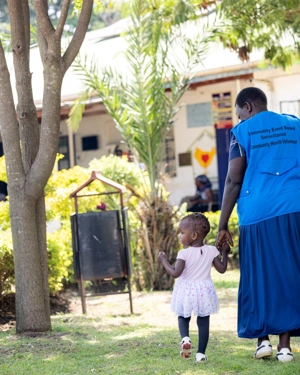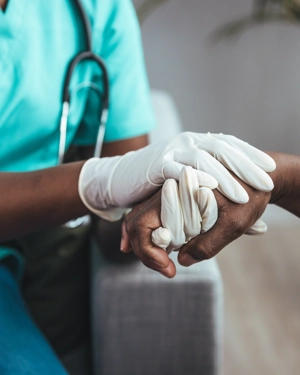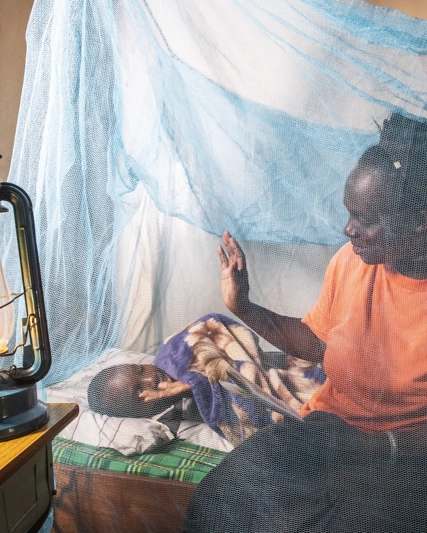What does it mean to get ahead of disease by focusing on prevention, intervening earlier, and more effectively? Here, the GSK team explains why they believe prevention is the best outcome not just for patients, but for the world’s health systems and economies.
Modern medicine has revolutionised the way we live. The introduction of antibiotics extended people’s lives by an estimated 20 years. Vaccines are second only to clean drinking water in their impact on human health, saving around 4 million lives every year. Innovation means that people living with HIV no longer face a death sentence.
But the challenges to our health are evolving. Bacteria are finding new ways to outsmart antibiotics. Climate change means infectious diseases are emerging in areas where they were previously controlled. People are living longer, creating more complex health needs as the burden of chronic diseases increases. Diseases that once largely affected older populations are now afflicting younger people too, and cases of early onset cancer have risen almost 80% in the past three decades.
Too often, our health systems are focused on reactive treatment. Only around 3% of total health spending is dedicated to prevention across wealthy countries, meaning people live with diseases that could have been prevented or controlled earlier, and health systems must deal with the consequences.
At GSK, we believe that prevention is the best medicine – for patients, societies, health systems and economies. Investing in prevention delivers better health outcomes, is cost-effective, and healthier people are better able to contribute to economies and societies at large. For every $1 invested in improving health, an economic return of $2-4 is possible. As we all think about how to help people live healthier lives, there is a clear opportunity to shift from funding “sickness systems” to investing in health – enabling earlier action to prevent, diagnose and treat disease.
The strongest contribution that GSK can make to preventing and changing the course of disease is through our innovation. That’s why we’ve built one of the broadest vaccine portfolios in the industry to help protect all stages of life from childhood to older age. We're pursuing technologies such as adjuvants, mRNA and MAPS to deliver more effective vaccines at greater speed, and could be used to create vaccines to fight bacteria and viruses that have eluded scientists for decades.
Beyond vaccines, we make prevention a focus right across our pipeline, thinking about how we can intervene earlier to prevent and change the course of disease. We're pioneering long-acting treatment options to offer innovative solutions that meet the evolving needs of people living with HIV, reducing the challenges they face using daily oral therapy, like stigma, discrimination and problems with adherence.
Our decades of expertise in respiratory care have led us to evolve treatment goals and create medicines that could bring patients closer than ever before to remission for severe asthma, freeing them from exacerbations (attacks) that cause cumulative lung damage, removing the need for oral corticosteroids, stabilising lung function and controlling symptoms.
For us, prevention also means stopping chronic conditions, like hepatitis B, from progressing to more serious complications, like liver cancer. Using the latest in AI and machine learning techniques, our scientists have identified biomarkers that allow us to understand which treatment combinations fit which patients, and potentially increasing the likelihood of achieving “functional cure” – when the virus is no longer present in the blood, and liver functions have normalised, stopping any future damage.
Read more about prevention
We believe that prevention is something we can only do together, which is why we bolster our team of world-leading scientists by partnering with the very best in academia, biotech and tech. Working with Nobel Prize-winners like Jennifer Doudna at the Laboratory for Genomics Research means we can better understand why small changes in a person’s genetic make-up can increase the risk of disease. Our partnership with Kings College London aims to use AI tools to support clinical decision-making to personalise care for patients with cancer.
We also need to work together to help preventative interventions reach the people who need them. Since 2010, we’ve worked with Gavi, the Vaccine Alliance, to provide more than 2 billion vaccine doses, helping to protect millions of children from preventable diseases in lower income countries. And our partnership continues to grow, with the first doses of our malaria vaccine shipped to Cameroon in November 2023.
Our ambition is to positively impact the health of 2.5 billion people by the end of 2030, and we believe placing prevention at the heart of innovation is the way we will achieve it.
Yes, prevention means creating efficient vaccines faster than ever before – and working to ensure everyone has fair access to them. But it also means continuing to find innovative ways to intervene early in the course of disease, and to prevent further damage caused by related conditions.
We want to work with patients, policy makers and our peers to stop disease in its tracks, creating the right conditions to champion prevention and enable timely, proactive access to preventative interventions.
Together, we have the opportunity to transform all our lives for the better – now is the time to take it.











